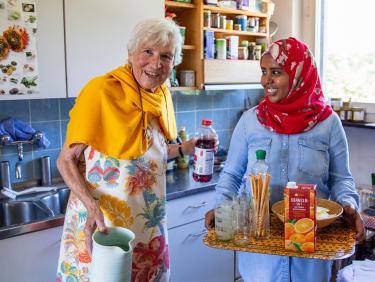Values
Based on the dignity of every human being, the following are HEKS/EPER core values: justice, self-determination, solidarity, help without ethnic, social, religious or other barriers, responsibility, participation, closeness to people and effective action. These values should be perceptible in all spheres: in programmes and projects, in fundraising and communications, and in dealings with employees and partners.
More...


